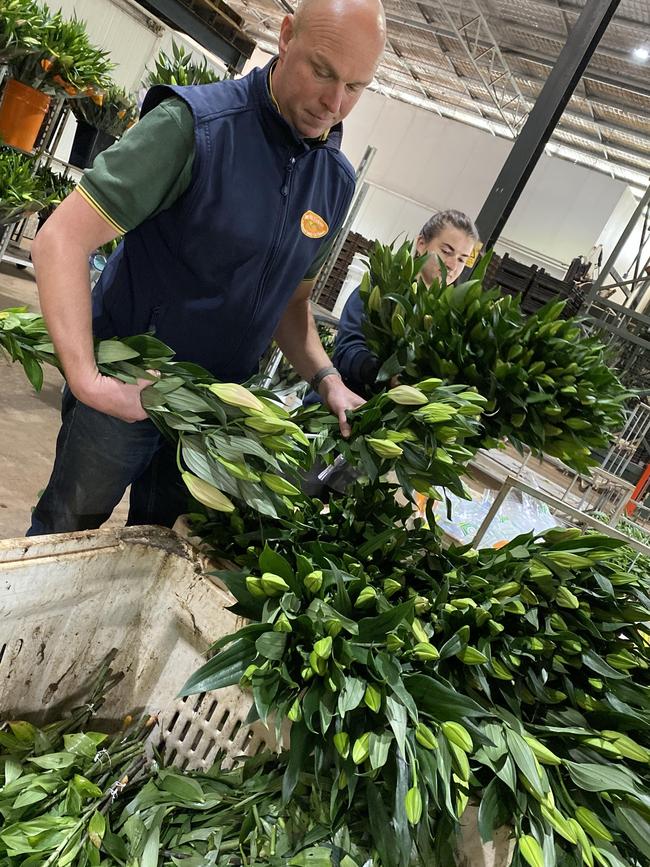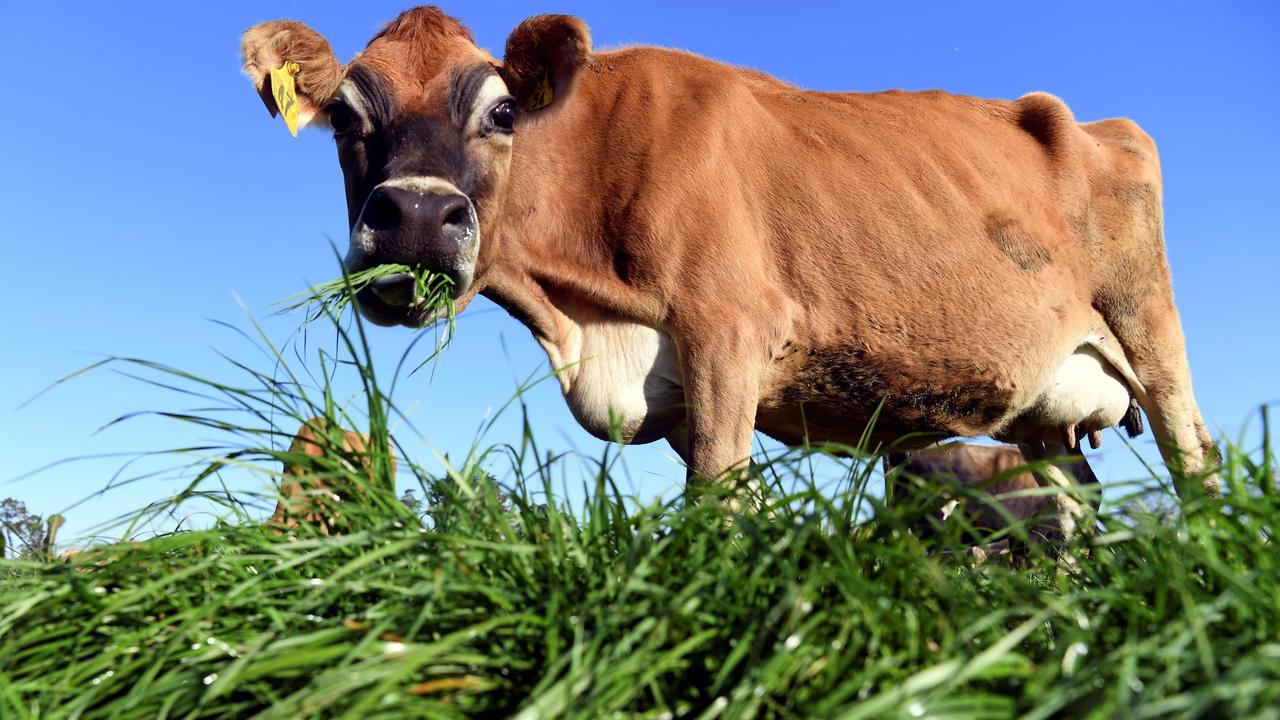Coronavirus sees tens of thousands of flowers binned
A collapse in consumer spending, mass cancellation of events and the forced closure of florists means this flower business will bin $40,000-$50,000 worth of flowers this week alone.
WHILE most other agricultural sectors are well poised to at least weather the coronavirus storm, the cut-flower industry is facing a blooming disaster just weeks out from its peak demand period.
Rob and Mariske de Wit of Sunny Hill Flowers at Silvan in Victoria’s Dandenong Ranges say a collapse in consumer spending, mass cancellation of events and the forced closure of non-essential businesses such as florists mean they will bin an estimated $40,000-$50,000 worth of flowers this week alone.

And they fear that figure could skyrocket in the lead-up to their busiest period of the year — Mother’s Day in May, which they have spent months planning for with plants already in the ground.
Sunny Hill Flowers generally sells about $100,000 worth of flowers, mostly lilies, a week, with sales rising to $500,000 during the fortnight over Mother’s Day.
Mr de Wit said the coronavirus crisis had led to a 30-35 per cent drop in flower sales last week and a further 20 per cent drop on Monday, which could push the business to the limit in the face of high running costs such as gas. The de Wits are part of an industry-wide campaign to get consumers to buy more flowers and to have florists recognised as essential business supplying a perishable agricultural product.
“A six-month lockdown (for non-essential business) for us means we are looking at a substantial amount of money,” Ms de Wit said. “Our biggest day of the year is coming in May, Mother’s Day, which we plan for three or four months. It has all been planted – it is all sitting in the ground ready to go.
Monbulk rose grower Mick Allen of Nood Blooms grower almost entirely for the wedding industry, selling as many as 700 bunches a week. He said with mass event cancellations, he’s been left in the lurch.
“I’ve tried to donate them to nursing homes but they don’t want anyone in there. I can only keep them in the fridge for three days.”
He is hopeful supermarkets will look to sell Australian grown flowers instead of imported stock. “Unless we see the supermarkets come to the table, there’s going to be some trouble,” Mr Allen said.
A Coles spokesman said the supermarket and its flower supplier, the Lynch Group, already had an Australian-first flower sourcing policy.
Woolworths said it worked closely with its suppliers to offer high-quality locally grown flowers, but “due to the seasonal nature of flowers, we do turn to imported flowers to supplement our customers at different times of the year”, a spokesman said.
Paul Pavlou operates one of Victoria’s biggest flower wholesalers, Mr Fresh, buying cut flowers off 45 growers to sell at the Melbourne wholesale market.
Mr Pavlou said in the past week, business had been slashed. “We’re down to 30 per cent of what we normally sell. We don’t know how long we can keep going for. Flowers are just going to landfill, it’s tragic. A lot are being rotary hoed, but there’s a hell of a lot that’s not even getting into the hands of the wholesalers, let alone the retailers,” Mr Pavlou said.
He said the industry was approaching home delivery services to try and incorporate cut flower sales into food parcels.
“Can they throw an industry that’s shutting overnight a lifeline?” Mr Pavlou said.
Wildflowers Australia spokeswoman Bettina Gollnow said the industry was going bankrupt overnight. “We’re reduced down to only a few exporters. She said the news out of Holland, the world’s biggest flower producer and trader, was dire. “They’re just dumping product because no one is buying anything.”
On a positive note, Ms Gollnow said as native flowers were perennial crops, growers could defer harvest or could dry their crops and sell at a later date


